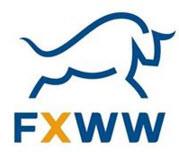Not every profitable trader will make it as a professional trader in the institutional world.
An institutional investor will break their analysis of a trader or manager into two parts; qualitative and quantitative.
Everyone has different rules and preferences when it comes to the quant side but these are the main areas that are considered;
- activity
- methodology, systematic or discretionary
- overnight and weekend position policy
- daily, weekly, monthly drawdown limits (always based on equity NOT on realised)
- when and how much leverage is used (ie does leverage increase or decrease in drawdown periods)
- profit-to-loss ratios
- chosen indicators eg Sharpe, Sortino, Sterling etc etc
So even if you have been a reasonably consistently profitable trader over a lengthy period, a negative analysis on any of the above will probably mean that you won’t get an institutional allocation.
The qualitative side is much more subjective;
- how long have you been trading
- have you any institutional experience
- can you provide at least 2 well-respected referees
- have you managed any institutional funds or been in a seed-funding program
- can you provide evidence that you are an upstanding citizen
Even if a trader can provide exceptional data, they may well be refused an institutional allocation if they cannot tick enough of these boxes.
Obviously the ex-institutional traders have a significant advantage in this department but there aren’t many of them any more. The FXWW rating gives investors peace of mind that significant due-diligence has been done on the background of all registered traders.
By Sean Lee in FXWW News

